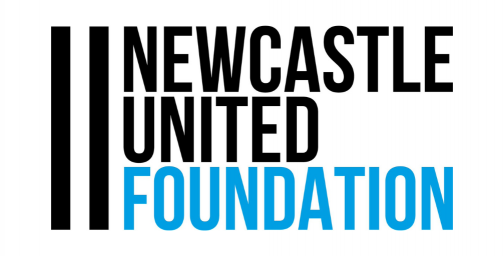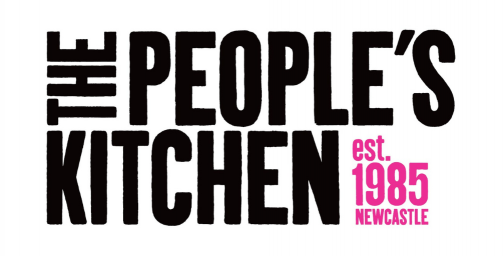
the essential guide to starting a football team

According to the FA, nearly one in five English adults — a massive 8.2 million— are now participating in our national sport in some way. Despite the often dismal displays of our national team in major tournaments, our passion for the beautiful game clearly sees no sign of abating, with grassroots football seeing more participation than ever.
Many players at this level want to take their passion for the sport to the next level, with many harbouring aspirations of trying their hand at management. If this sounds like you, then the perfect way to find out if you’re the next Sir Alex Ferguson is to start your own team.
Whether you’re looking to create a 5-a-side squad or a full Sunday league side, this guide contains all of the information you need to hit the ground running. So read on to find out:
- What you need to start a football team
- How to find the right players
- How to narrow down your squad and choose your first team
- How to register with your local league (and how much it’s going to cost)
- How to secure a home ground
- How to get the best kit for your money
- The initial and annual costs of running a football club
So if you’re ready to take the plunge and set up your own team, here’s everything you need to know.
What do you need to start a football team?
If you’re eager to kick off your own football team, then it’s best to tackle the fundamentals to ensure a smooth start:
Club name: Your team's identity begins with its name. This decision sets the stage for everything from league registration to kit design and player recruitment. Choose a name that resonates with your community, blending catchiness with significance.
Club crest and colours: Craft a distinctive crest and select colours that make your team instantly recognisable. Your crest should represent a defining feature of the club, whether that be its ethos or local roots. Solicit ideas from fellow enthusiasts and envision your emblem adorning the field.
Club officials: Assemble a robust team of officials, comprising a head coach, secretary, and treasurer at minimum. In the initial stages, multitasking might be necessary, with one individual handling multiple roles. However, as your club flourishes, delegate responsibilities to accommodate growth.
County FA affiliation: Liaise with your county FA to affiliate with the national body. Similar procedures apply in Scotland and Wales. Though the registration process is straightforward, thoroughness is key. Your county FA serves as the regulatory authority, enforcing rules and overseeing disciplinary matters.
Club constitution: Every successful team needs a solid foundation, as embodied by a constitution letter. This document ensures compliance with FA standards while outlining the club's mission and operational framework. Cover essential aspects such as club name, objectives, FA affiliation, membership fees, equality policies, AGM protocols, and disciplinary procedures.
By addressing these principal administrative aspects, you'll lay a sturdy groundwork for your football team's journey ahead.
How to recruit the right players for your football team
You can’t have a team without players, so the first step for anyone looking to start their own football team from scratch is to hold trials and pick a squad. This way, you’ll both generate interest within the community and get a firm notion of the available local talent.
Before you start getting the word out about your trials, you need to decide exactly what your expectations are for the team. It’s a good idea to sit down with a pen and pad or a laptop and decide:
- What kind of team it’s going to be (men’s, women’s, or children’s)
- What format of football you want to play (5-a-side, 11-a-side, etc.)
- Whether you’re going to be taking it casually or you’re out to win
- What standard of player you’re looking for
- What level of commitment you’re looking for (2 training sessions a week, just turn up for games, etc.)
The more detailed your idea of the kind of team you want to start the better, as everyone coming to your trials will know exactly what to expect.
How to advertise your football team trials
Once you’ve decided on these details, your first port of call when you come to putting the word out should be your personal contact list — friends, family, colleagues, and those you’ve played football with in the past. Ask around to see if they are interested in joining your team, and ask them to spread the word around their contacts as well.
For some people, your social circle alone may be enough to find a full squad of players. Even if this is the case, you shouldn’t stop there, as the bigger the crop of players you have to choose from at the start, the stronger your team is going to end up.
After you’ve exhausted your list of personal contacts, it’s time to widen your net. Start by putting the word out on your personal social media pages (and asking your friends to share the post so it reaches as many people as possible). Include all of the details you decided on earlier so you only hear back from those who fit what you’re looking for.
The next step is to design a flyer advertising the trials. This doesn’t need to be anything special, although if you or anyone you know is a competent designer, this will only help your cause. If not, just make sure it includes all of the relevant details, and then ask your local gyms, swimming pools, and 5-a-side pitches if they’ll let you put it up. Supermarkets and libraries also often have community noticeboards, so enquire about getting your flyer featured there as well.
If you’re not comfortable giving out your personal contact details on the flyer, it can be a good idea to set up an email account for the team. It can also be a good idea to set up a Facebook group for the club where people can get in touch with you — you can then use this as a central hub to keep connected with all of your players.
If your employer has a company newsletter, ask them to mention your trials. They may also have a noticeboard where you can put your up flyer. If you’re recruiting for a children’s team, ask the local schools if they can put flyers up for you or send an email or letter out to the parents.
The internet is also a great way to find players for your team. Put up an ad on Craigslist and Gumtree as well as specialist sites like UK Football Finder and playerwanted.co.uk and you never know — you might even discover the next Jamie Vardy.
How to hold a successful football team trials
When it comes to the day of your trials, make sure to turn up in plenty of time to get set up. The players who turn up won’t be interested in joining your team if you seem disorganised and inexperienced, so make sure you have everything prepared in advance so the session goes as smoothly as possible.
If you’re new to football coaching, the FA’s database of drills and practises is a great place to start. A varied selection of basic drills will give you an idea of the overall skill level of each player. Following this by splitting everyone up into teams and having a few short games in different combinations should give you enough information on each player to know who you should pick for your team.
Ideally, enough players will have attended your trials that you need to whittle down the selection of your squad. For Sunday league teams, it’s recommended you have a squad of around 20 players to ensure you have plenty of cover for when your first picks aren’t available. If you’re starting a 5-a-side team, then you should aim for a squad of around 8 regular players.
Over the few days after the trials, you should inform each of the attendees whether they’ve made the team or not via text or phone call. At this point, it’s important that you don’t burn any bridges with the players who don’t make it into your squad, as you may need to call on some of them as reserves at throughout the season.
11-a-side: Choosing your deputies
When you’re starting up an 11-a-side team, your next step is to appoint a couple of able and trustworthy deputies. While it is possible to do everything yourself, if you’re in full-time employment and have other commitments, you’re unlikely to have the time or energy. You therefore need to fill three major roles with reliable people you trust: a secretary, a treasurer, and a manager.
The secretary
The secretary is in charge of the club’s admin responsibilities. They liaise with your league and county football association, and as such are a crucial representative of the club. It’s therefore important to choose someone organised, reliable, and respectable for this role. Their duties will include confirming fixtures and reporting your scores to your league and occasionally attending meetings held by the county football association.
The treasurer
The treasurer is in charge of the club’s finances. They are expected to take payments from your players, make them to the league and county you’re a member of, and generally account for the club’s money. For obvious reasons, this person needs to be trustworthy and have strong maths and organisational skills. The treasurer should also set up and maintain a club bank account.
The manager
The manager is in charge of the club’s on-field performance. They are expected to organise training sessions and inform all of your players about them, keep all of the players in your squad happy by making sure they get regular game time, and improve the team’s performance by working on tactics and formations. The manager will be the face of the club to the players, so it’s important you choose someone for this role who will garner respect from your squad — a sharp, tactical mind and a good knowledge of training exercises and formations will help here. It’s also crucial that they’re organised, approachable, and not afraid to pull players up on poor behaviour.
You’ll more than likely be filling one of these positions yourself, so it’s important that you pick two trustworthy people to fill the other two roles. If you’re starting a kid’s team, then these can be two of the player’s parents.
If you don’t have anybody to fill the other two roles at the inception of your team, you could take on all of the responsibilities for the first month or so before asking two of your regular starters whether they’d like to take on the roles. It’s not recommended that you take on all three roles yourself, so make sure that you find your two deputies as fast as possible.
How to register your football team
While the recruitment process is similar whether you’re starting a 5-a-side or a Sunday league team, the process of registering your team to play in a local league is totally different.
How to register a 5-a-side football team
Once you have your players, you simply have to register your 5-, 6-, 7-a-side, or futsal team with a local league. Your players will also have to register with the league individually to be eligible to play for you.
In most leagues you can register around 20 players for your squad throughout the season, but only 8 can be used in each match — this rises to 9 for 6-a-side and 10 for 7-a-side. These players need to be named on the team sheet prior to kick-off to be eligible to play.
The standard 5-a-side season lasts 14 weeks, with each team playing twice each week. Your team will be deducted points for missing games, so make sure you have at least 8 reliable players to call upon each week.
Your team will be charged every week to participate in the league, with the cost usually working out to no more than £5 per player every game. As you need to pay before you can play, it’s advised that one person — usually the treasurer — brings enough money to cover the cost and then the other players pay him back. This will ensure you never end up not being able to participate.
How to register a Sunday league football team
Setting up an 11-a-side team is more complicated. Firstly, you need to register yourself with your local county football association. You aren’t eligible to play so much as a friendly against another team without this registration, and you won’t be able to participate in a league without it. You can find your local county association on the FA website — registration is a one-off payment that will usually cost around £50.
The next step is to apply to a local league. You’ll have access to a list of your local leagues once you’re a member of your county FA. Each league will have its own registration process, but they’ll generally require:
- Your team name and colours
- The contact details of your manager, secretary, and treasurer
- Evidence of your registration with the county FA
- The details of your club bank account
Registration to a league will cost your team around £100 a year, and your acceptance will be subject to an interview. In this, they’ll be looking to confirm that you’ll have the financial capacity to last the entire season, are well structured as a club, and are generally taking things seriously so they can trust you’ll turn up to your scheduled games.
Once your club has been accepted into a league, you’ll have to register each of your players. You should aim to have a squad of around 20 — on match days you’ll need 11 starters and 5 substitutions.
Some grassroots 11-a-side leagues have recently introduced rolling substitutions, allowing teams to bring players on and off the pitch as many times as they wish over the 90 minutes. In leagues where this is the case, managers have access to their whole squad on match days, so there’s no need to whittle your match day squad down to 16. This allows you to keep your reserve players happy by giving them more game time.
Overall, registering your team with your county FA and a local league will cost around £150. Depending on when the league you’ve applied for begins, it may take a few months before you get onto a football pitch, so you may consider choosing your league based on its starting date.
How to find a pitch for your Sunday league team
Once you’ve assembled a squad of players, registered as part of your local FA, and been accepted into a local league, the next step is to find a pitch to play and train on.
Your pitch is likely to be your highest annual expense, with fees ranging from around £300 all the way up to £1000 in some cases, depending on your location and the facilities provided alongside the pitch.
Local parks, sports centres, schools, colleges, and universities often have pitches which you can rent. These can range drastically in quality, and you’ll generally get what you pay for; at the bottom end of the price range, you might get a pitch drawn onto a reasonably flat area of grass in a local park, while the most expensive options come with good-quality changing rooms and a dedicated groundsman. The right pitch for your team depends on availability, location, your finances, and how dedicated you are.
With some pitches, you need to provide your own goalposts, nets, and corner flags, which can set you back an additional one-off cost of a few hundred pounds.
Buying the kit for your football team
To compete in a Sunday team league, your team will require a home strip and an away strip. The home strip must be in the team colours that you registered with your county FA, while the colour of the away strip is up to your discretion. Each shirt needs to have your team badge on the chest and a unique number on the front and back.
While the team is expected to supply the kit, it is up to your discretion whether or not you’re going to pass the cost of each one on to the player. Depending on the quality of the strip, each one will cost around £30–£60 all told — this quickly adds up when you’re buying them for your whole squad.
When buying your team’s strip, make sure you’re not tempted to skimp on quality in order to save on the initial costs. A good-quality kit that is washed appropriately can often last several seasons, especially infrequently worn away kits. Cheap jerseys sometimes don’t even last a full season, so make sure to spend wisely and invest in good-quality strips from the start.
One way you can save money is by using the same shorts and socks with both your home and away kit. Choose black or white, and they’ll match any colour top, meaning you won’t have to buy two separate sets. Buying your strips in bulk from a provider such as ourselves will also save you money.
Other expenses will include bibs for training exercises, while you may also consider investing in some base layers for your players for during winter, as these need to match the colour of your strip to be eligible to be worn during a match.
While it’s not strictly necessary, it’s also a good idea to get jackets and jumpers embroidered with your team badge for the manager and the players on the bench as well, especially as you become more established as a club.
While you’ll have to supply the kits for your players and cover the cost of laundering them, they should be expected to provide their own boots and shin pads.
How to find a sponsor for your Sunday league team
One way you can save on your initial outlay is by finding a sponsor for your Sunday league side. In return for featuring their logo on the front of your strip, your sponsor will usually cover its expense. Securing a sponsor can therefore save your team hundreds of pounds.
To find a sponsor for your team, simply enquire with local businesses to see if there are any who are interested in becoming your sponsor. Just as when you were spreading the word about your initial trials, you should start by leveraging your personal contacts. Ask any business-owning friends and family members whether they’d be interested, as well as your employer. Most sponsors have a direct connection to the club, such as being a close relation to one of the players, so make sure to prompt your teammates to do the same as well.
If this yields no results, then ask the landlords of your local pubs if they’d be interested in sponsoring a team. English pubs have a long history of sponsoring Sunday league sides, so this can often be a fruitful avenue of enquiry.
If you still can’t find a sponsor, try your hand at convincing a local business to support your team. Independent shops, restaurants, and cafés are often good place to start before trying your luck with larger businesses.
A sponsor will be looking to associate themselves with a reputable team that offers a valuable service to the community, so try to demonstrate that you fit this description. You’re opening up a business relationship, so make sure you’re always polite and efficient in your communications with them to give yourself the best chance of getting them on board.
The costs of running a football team
There’s a big difference between the costs of running a 5-a-side and an 11-a-side team — depending on how serious you’re planning on taking it, this may affect which kind of team you set up.
The costs of running a 5-a-side team
The price you pay on the door each week as a 5-, 6-, 7-a-side or futsal team will cover your entire expenses, as this cost includes the pitch rental and the referee’s fee — this will usually come to around £5 per player.
Some more serious leagues will require your team to have a kit, but generally, you’ll be provided with bibs by the venue. The venue will also provide a match ball, but your players will need to use their own shin pads and boots.
The costs of running a Sunday league team
As previously mentioned, it costs approximately £150 to get your team set up with your local FA and registered with a league. If you haven’t found a sponsor for your team, a good-quality kit that is going to comfortably last you a few seasons is going to you another few hundred pounds.
If you can’t find a sponsor, you’ll also need to pay for your own home and away kits. For a squad of 20 players, a full quota of good-quality strips will come to around £1000.
Other start-up costs you need to consider include several good-quality footballs. These will cost you £15–£30 each, while it’s also a good idea to splash out on a few top-quality balls you only use on match days. You might be able to save money by buying these in bulk, but be prepared to pay around £150 overall. Your stock will likely need bolstering between each season, so make sure to budget for this as well.
To participate in any serious league, you’ll be required to also have a full first-aid kit. This will cost you around £30.
If your home ground doesn’t come with goal posts and corner flags, you’ll also have to provide those. This will cost anywhere from £100–£200.
Alongside these one-off costs, you’ll have a number of running costs to attend to as well. The biggest of these will be the annual cost of renting your home pitch, which is likely to come to anywhere between £300 and £1000.
It is now an FA requirement that your team is covered by personal accident insurance so your players are protected for loss of wages should they receive an on-field injury that prevents them from working. Your team will also require public liability insurance, which covers spectators and passers-by from any injuries that they receive as a result of any match played in a public place. You can often get both as part of a package deal that generally comes to about £200 a year.
In the majority of grassroots leagues, the home team pays the referee’s fee. This is usually between £30 and £50 per game, depending on how far they have to travel, and you need to budget to pay this an average of every two weeks.
You’ll also need to budget for smaller regular expenses like washing the kit every week and providing half-time refreshments for your team. These will come to around £30 a week.
You should also budget for fines that come down from the league. Each league charges a different amount, but cautions and dismissals all cost money. These charges are made to the club, but you can choose to pass these on to the players who received them.
Your team can also receive fines by failing to abide by your league’s rules, most commonly in the form of failing to report your team’s results. Good organisation goes a long way, and you can easily avoid almost all of these fines with some basic planning, so make sure you have a solid infrastructure in place.
You can recoup some of this money by charging your players a sign-on fee — most teams charge between £20 and £100 — and a match day subscription fee, which most clubs set between £2 and £10. You can also run competitions and raffles to try and recoup some of your expenses, which can potentially earn you another few hundred pounds over the course of the season.
The costs of running a Sunday league team checklist:
> Start-up Costs
| Registering your team with your local county FA | £50 |
| Registering your team with a local league | £100 |
| A home and away kit (if you can’t find a sponsor) | £1000 |
| Several good-quality footballs | £150 |
| A full first-aid kit | £30 |
| Goal posts and corner flags (if your ground doesn’t have them) | £100 - £200 |
> Running Costs
| Registering your team with your local county FA | £300 - £1000 |
| Registering your team with a local league | £200 |
| A home and away kit (if you can’t find a sponsor) | £30 - 50 a fortnight |
| Several good-quality footballs | £30 a week |
| A full first-aid kit | £0 - £500 |
> streams of income
| Player sign-on fees | £20 - £100 |
| Player match day subscription fee | £2 - £10 per player |
| Potential profits and raffles and competitions | £0 - £200 |
While there are a lot of costs associated with starting and running a football team, it can be an amazing experience for those with a passion for the beautiful game. If you’re thinking about taking the plunge yourself and starting up your own team, then be sure to check out our range football kits and training gear — get in touch with our friendly team of print and embroidery experts to discuss your custom order today.


































